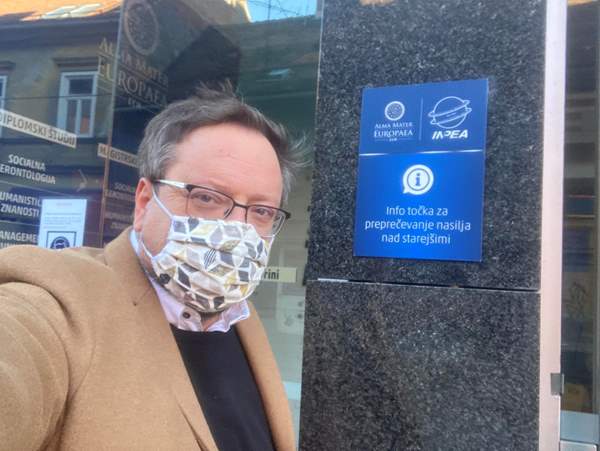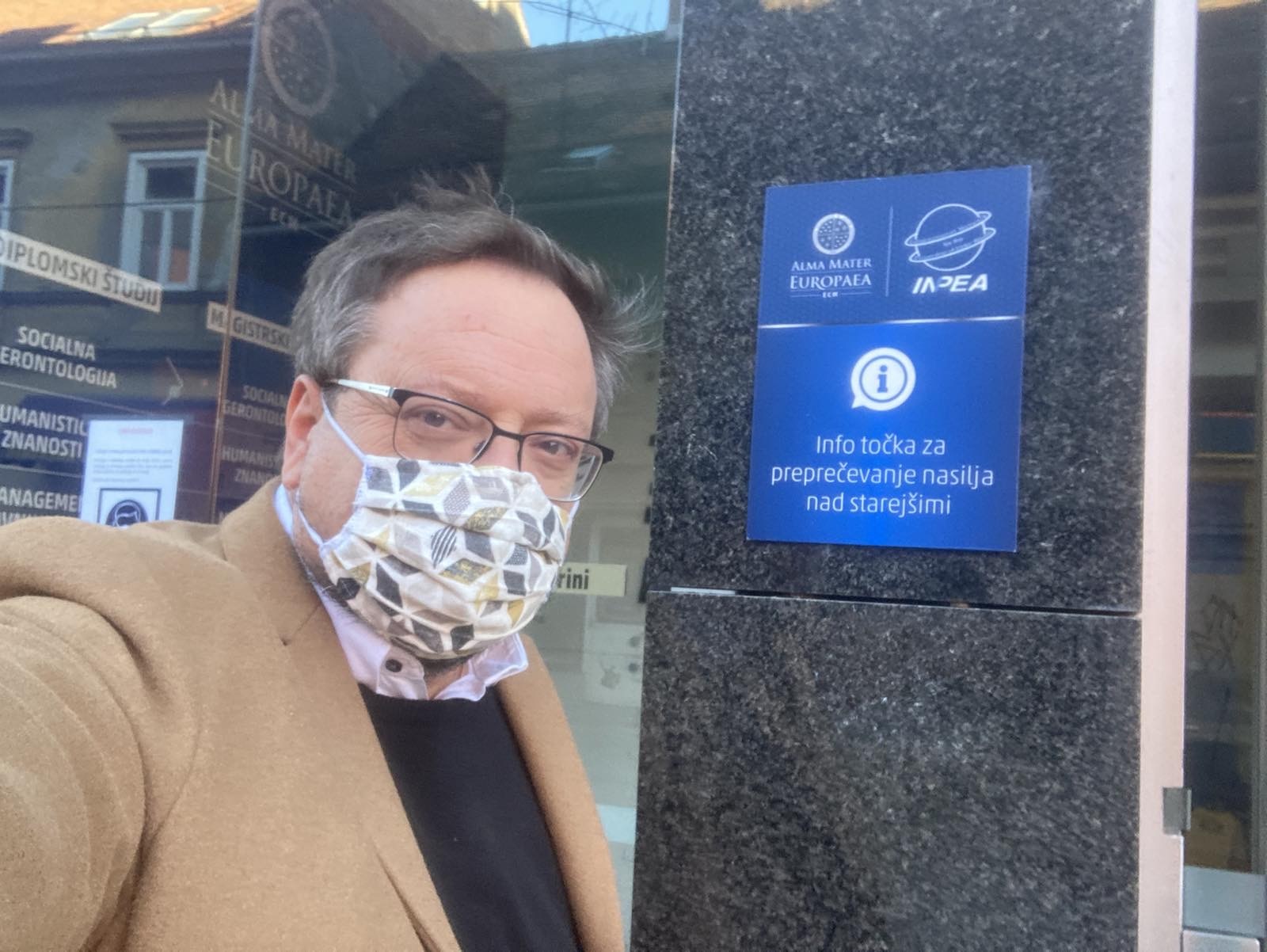
The Government of the Republic of Slovenia has appointed Borut Ambrožič, Head of the INFO INPEA POINT at Alma Mater Europaea - ECM, as a member of the Commission for the Management of Genetically Modified Organisms (GMOs)

The INFO INPEA point for health protection and protection of the rights of older adults has been operating at Alma Mater Europaea ECM for several years. Borut Ambrožič, the head of the info point, a local expert on non-governmental organization and in the field of health protection and related human rights, has been appointed to the Commission for the Management of Genetically Modified Organisms (GMOs) for the second term.
The Government of the Republic of Slovenia has established the Commission for the Management of Genetically Modified Organisms (hereinafter: the GMO Commission) to monitor the situation and development in the field of management of genetically modified organisms. In addition to European regulations, the legal basis is provided by the Act on the Management of Genetically Modified Organisms, which also dictates the establishment of GMOs. An important provision in relation to this Act is also that the public has the right to be informed about the handling of GMOs and to be involved in authorization procedures in accordance with this Act.
The GMO Commission therefore has the following tasks:
• adopts views and gives opinions and initiatives on the use of genetic technology and GMO management and on social, ethical, technical, technological, scientific and other aspects of GMO management,
• advises the government on matters related to the use of genetic technology and the management of GMOs,
• informs the public about the situation and developments in the field of the use of genetic technology and the management of GMOs, about their views and opinions and about their work,
• exchanges information and experience with related institutions abroad and cooperates with them.
The GMO Commission consists of 17 members appointed by the government for a period of four years. The Commission consists of: two representatives of the humanities, social sciences, natural sciences, non-governmental organizations in the field of environmental protection and one representative of the Slovenian Academy of Sciences and Arts, medical sciences, veterinary sciences, each scientific committee, the Chamber of Commerce of Slovenia, the Chamber of Agriculture and Forestry of Slovenia and one representative of non-governmental organizations in the field of health protection. Representatives of non-governmental organizations are nominated by the ministry responsible for environmental protection on the basis of a public call. At its November session, the Government of the Republic of Slovenia adopted a resolution on the
appointment of members of the Commission for the Management of GMOs. Borut Ambrožič, the head of the INFO INPEA POINT at Alma Mater Europaea - ECM, is also among the nominees. On his initiative, the first information point INPEA - the International Network for the Prevention of Abuse of the Elderly in Slovenia - was launched in 2015. The International Association for the Prevention of Violence against the Elderly operates as a non-governmental organization (NGO) with special advisory status within the United Nations Economic and Social Council (since 2003), the Department of Economic and Social Affairs (DESA) and is affiliated with the UN Department of Public Information (DPI). INPEA, through international cooperation, seeks to improve society's ability to recognize and respond to inappropriate treatment of older people in all circumstances, so that later years of life will be free of violence, abuse, neglect and exploitation. In 2014, INPEA appointed Borut Ambrožič as its representative in Slovenia.
The NGO activist Borut Ambrožič is an active expert in the field of health, human rights and environmental protection. Due to his reference work in the aforementioned fields, he has already been appointed to various advisory bodies or functions at the local and national level, such as: Representative of Patients' Rights Maribor, Council of Disabled - Maribor Municipality, Council for Public Health and Environment at Maribor Municipality and Commission for Patients rights of the RS, etc.
Borut Ambrožič said at the appointment: "I think it is very important that civil society is involved in all decisions that affect us all. Without health and a clean and safe environment, we would cease to exist. Just look at the damage caused by the introduction of non-native species into our environment and / or the consequences of the emergence of the new corona virus, which has affected the 65 plus generation in particular. Without participation in such expert advisory bodies, we cannot talk about a sustainable strategy, which means such a development of society that will satisfy current needs and at the same time not harm future generations. "
What is meant by the term genetically modified organisms? These are plants or animals raised to generate higher yields or greater disease resistance by altering their cellular and genetic structure, in processes that alter genetic material differently than it does under natural conditions by crossbreeding or natural recombination.
Genetically modified (GM) food means food or feed containing, consisting of, or produced from a genetically modified organism (GMO). The approval process for new GMOs takes place at EU level in accordance with Directive 2001/18 / EC and Regulation 1829/2003 / EC. The latter establishes rules to ensure the traceability of products containing GMOs and food and feed derived from GMOs at all stages of the production and distribution chain.
In Slovenia or in the EU, products produced from GMOs must be labelled with the words "genetically modified" or "produced from genetically modified" (name of the organism). However, the following need not be marked with such a mark:
• meat, milk, eggs, fish and other products, fed with GM feed,
• fermented products produced with the help of GM microorganisms, such as cheeses, yoghurts and other dairy products, and
• Foods that have used enzymes produced from GM microorganisms.
Labelling is not required for food / feed containing a maximum of 0.9% of the individual permitted GMO, and the manufacturer of such food / feed must also demonstrate that its presence in the product is accidental and technically unavoidable. Each EU Member State must carry out inspections and the verification and analysis of samples, as well as determine effective sanctions for infringements.
A list of approved GMOs can be viewed at this link: https://webgate.ec.europa.eu/dyna/gm_register/index_en.cfm
